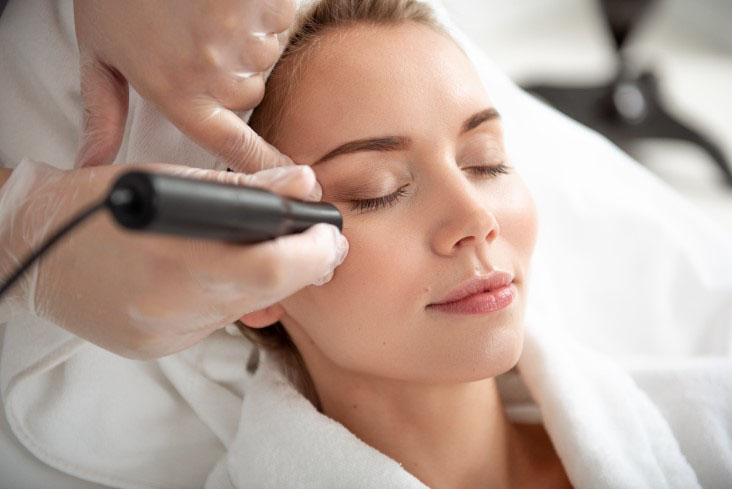When you think of “skincare expert,” you probably just think of one vague group of people. In fact, there are many different skincare specializations!
If you’ve decided that you’re interested in working as a skincare expert, it’s important to know what you’re actually going to do. In fact, the broadest term for this career is “esthetician,” or someone who works to create, improve, and maintain healthy skin. To become an esthetician, you’ll have to receive an esthetician qualification from a certified beauty school, but you can go in plenty of directions from there! Here are the most common specializations you may want to consider.

Medical Esthetician
This is potentially the most demanding type of esthetician, as it relies upon learning about the scientific facets and processes in the skincare industry. You’ll need to go through a training program, and you may even complete an associate’s degree that qualifies you medically. The extent to which you’ll need to learn medical principles may vary from program to program, but you should definitely tailor it to the type of work you’re expecting to do after graduating.
A medical esthetician may work closely with dermatologists, providing services such as Botox and laser hair removal, and advising patients on recovering from skin conditions or damage.
Spa Therapist
If you want to help people relax and focus on themselves, you may be interested in becoming a spa therapist. Essentially, after receiving your esthetician qualification, you’ll go through another program that teaches you the most popular procedures used in spas around the world. This usually includes aromatherapy, massage techniques, and all-natural relaxation options.
Of course, a spa therapist will usually work in a spa or salon. However, knowledge of spa therapy techniques can prove extremely helpful in other esthetician careers.
Waxing Specialist
Many people, both men and women, wax different parts of their bodies. While some people do waxing on their own, most people would rather leave this potentially damaging process to the experts. In this specialty, you’ll learn the best way to wax different parts of the body, the tools you’ll need for each area, and techniques that can help you do it most efficiently.
This is a very specific area of work, but if you apply yourself and learn the techniques you’ll need, you can be extremely successful. This specialization also provides a substantial amount of job security; people wax frequently, and they can’t always do it themselves.
Facial Training Specialist

Although most estheticians include the face in their repertoire of skills, a facial training specialist is focused specifically on helping clients maintain healthy, youthful skin on their face. You may learn about a variety of cleansing techniques, chemical and natural facial treatments, and how to operate machinery that can help clients stay youthful-looking.
Like a medical esthetician, a facial training specialist is likely to work closely with dermatologists. Many people are worried about the look of their facial skin, and a facial training specialist is great at helping those people improve their look as quickly as possible.
Skin Care Technician
Where a facial training specialist learns specialized knowledge about how to care for the skin on the face, a skin care technician instead studies a little about skin types all across the body. You may learn how to work with skin conditions such as eczema and rosacea or how to treat sagging skin on the body. Although it’s much less specialized than some other esthetician paths, it also requires a lot of knowledge.
One benefit of this esthetician type is that it’s extremely versatile. A skin care technician may work with dermatologists to help treat skin conditions, or may work at a spa to provide a technical eye for detail.
Which Should I Do?
At the end of the day, it’s up to you. For most people, one of these will be specifically interesting, and that’s probably the one you should start looking the most into! No matter what specialty you end up going into, however, you’re going to need an esthetician license, so make sure you get started on that as soon as possible!



